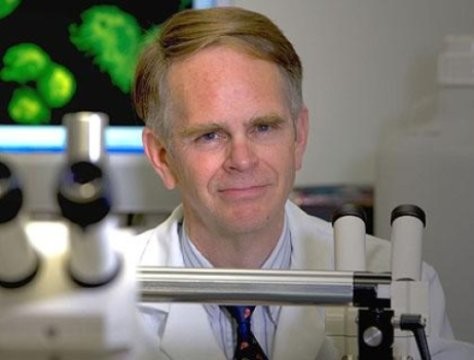“Now here's an interesting idea - what if instead of all diseases being anatomical, some diseases could be energetic and involve the mitochondria?”
Wallace’s research has been focused on the mitochondria for the past 30 years. These organelles that live in our cells are responsible for producing the energy that our bodies need to function well. What we’ve found out is that over time the mitochondria changes, he continued.
The changes can be severe enough to cause mutations that can be passed down from mothers to their children. Or they can predispose people to a wide variety of diseases including age-related diseases such as Alzheimer's, Parkinson's, macular degeneration, or infectious diseases like resistance to AIDS infection or pediatric diseases such as autism, continued Wallace.
One of the major breakthroughs he and his team discovered is that mitochondria is inherited through mothers and that information can be used to track migration patterns. It is this sequencing that is used by ancestral DNA testing firms to tell you where your family originally came from.
Today, the research on mitochondria is just beginning and it will be a while before a patient can request that their doctor check their mitochondria to see why they are feeling bad. In the meantime people can still take care of their mitochondria and their bodies.
“People should watch what they eat and try to get some exercise, we know that this is very good for the mitochondria, ”said Dr. Martin Picard, PhD, who has worked with Wallace on numerous studies. Picard and his team at Columbia University recently published a study about how stress can negatively affect the mitochondria. Ultimately this means that we must keep our mitochondria healthy, continued Picard.
“The mitochondria is central to everything that's involved in our life health and well-being,” said Wallace. “And without that energy we become inert and therefore could qualify as a cadaver.”

